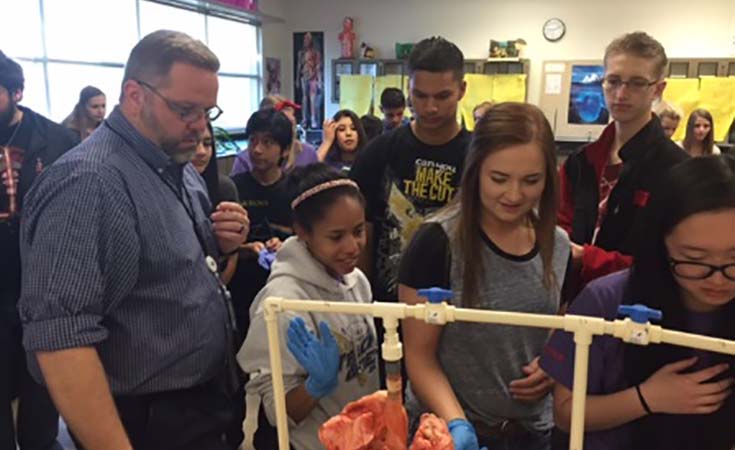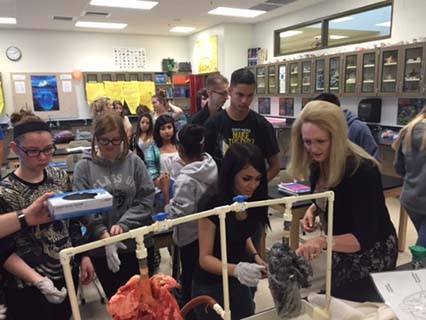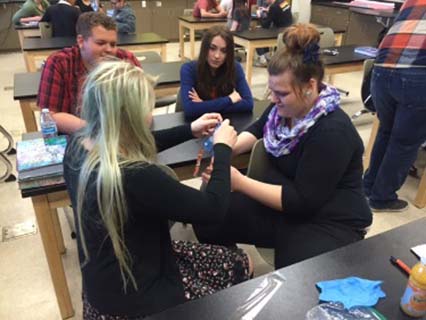
By Stuart Young, BSRT, RRT, and Kim Bennion, MHS, BSRT, RRT, CHC
Respiratory therapists at Cassia Regional Medical Center in Burley, ID, already recognized the value of teaching health promotion and disease prevention to students in their community. When the Utah Society for Respiratory Care offered to share their Breathe-zy after school program, the Idaho RTs took them up on the offer.
A community partnership with Intermountain Healthcare that continues due to the corporation’s generous funding, Breathe-zy is a free, three-hour, interactive course aimed at providing elementary, middle, and high school students with an opportunity to enhance their knowledge of lung health and tobacco/e-cigarette prevention.
Interactive Program
The program was developed by a Utah RT in 1995 and has been offered to over 10,000 students in Utah, Washington, the U.S. Air Force, Title VII Native American schools, and now, Idaho! A science teacher at Canyon Ridge High School in nearby Twin Falls asked the Utah RTs to present the program to her class and invited several other classes to participate as well.


Program activities are centered around interactive skits about saying “no” to commercial tobacco use, as well as key terms of respiration and the creation of a chest and lungs from two-liter soda bottles.
To learn the mechanisms of an asthma attack, students don shirts representing airway mucous, inflammation, and oxygen molecules in normal versus reactive states. The course culminates with pig and/or cow lungs dissections.
Students are surveyed at the beginning and end of the course to verify that they are retaining key knowledge. Teachers for the course include volunteer college students such as RTs, nurses, and pre-medical students; RT professionals; and high school students who are mentored in the program and the process of data outcome entry, analysis, and reporting.
Benefits include:
- Early awareness of the importance of general lung health and avoidance of lung disease-causing exposures such as tobacco, e-cigarettes, air pollution, and other particulates.
- Professional community education and leadership mentoring of students and other volunteers.
- Opportunities for professional networking and employee recruitment.
- Awareness of respiratory therapy as a profession.
- College respiratory therapy program credits to encourage community volunteering and stewardship.
- Unification of respiratory therapists across the country.
Changing Communities
The impact of community partnerships on health promotion and commercial tobacco/e-cigarette avoidance cannot be understated. Demands for the Breathe-zy program are increasing, and RTs in Idaho are leading the way. The RTs at Cassia Regional Medical Center wish to express their sincere appreciation for Intermountain Healthcare’s dedication to community stewardship.
One person can make a difference, but dedicated organizations working in partnership can change a community. Respiratory therapists are key members of the health care team, but it takes action to have our professionalism noticed. Together, we can make dreams a reality. RTs at Cassia Regional Medical Center are showing others how!
Stuart Young is the RT manager at Cassia Regional Medical Center in Burley, ID. Kim Bennion is the corporate respiratory care QA manager at Intermountain Healthcare in Salt Lake City, UT.
Email newsroom@aarc.org with questions or comments, we’d love to hear from you.










